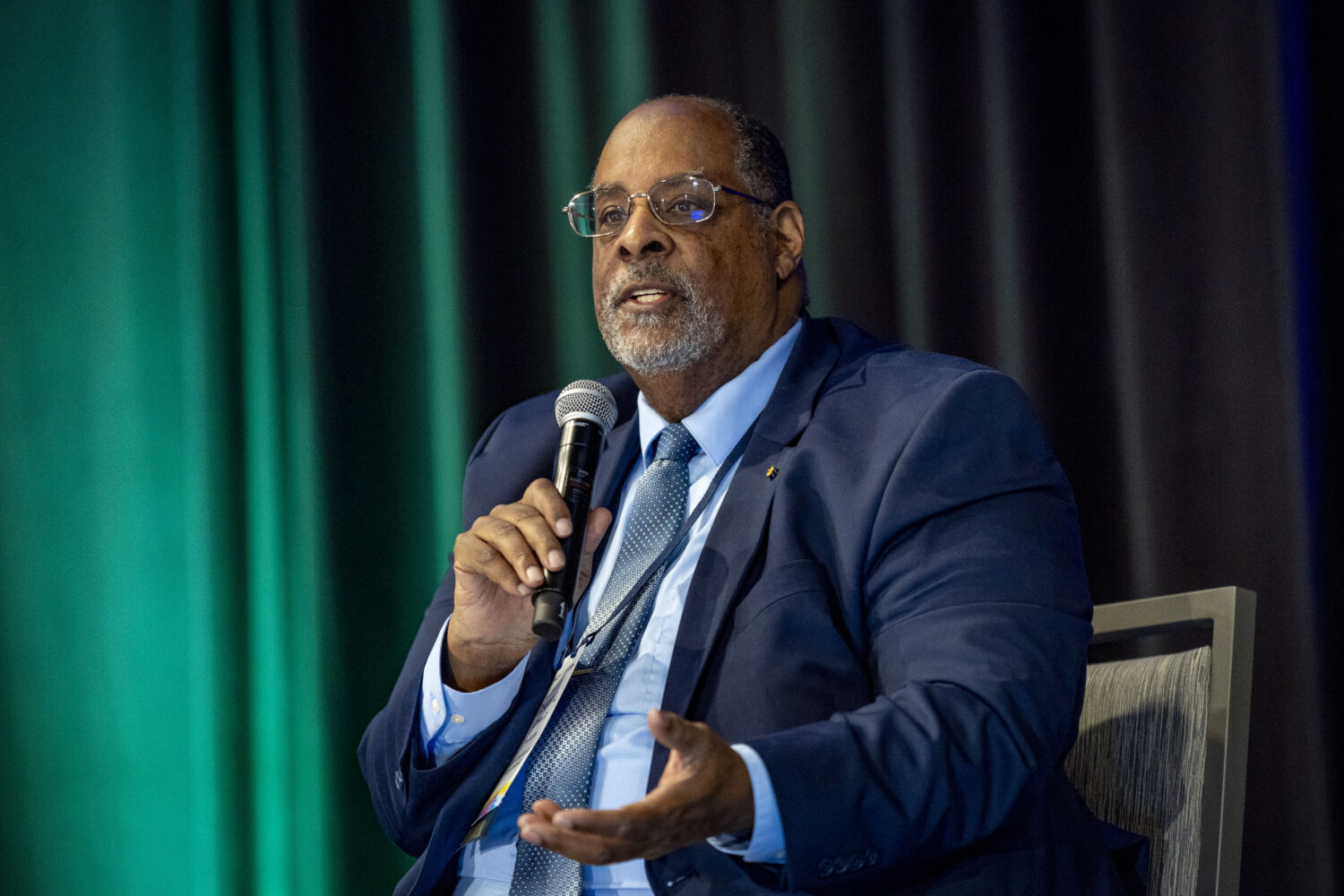
For Joseph L. Graves Jr., a lifetime of fighting social injustice
Evolutionary biologist Joseph L. Graves Jr., spoke at ScienceWriters2024 about his history of activism in science. (Photo: Megan Mendenhall)
As a scientist, Joseph L. Graves Jr. studies the evolution of aging and of microbes. And as an African-American man in academic science, he has worked throughout his career to combat racism and inequity in academia—work that sometimes comes with consequences.
“To live in a world that is structured by manifest social injustice, you have to be willing to die,” evolutionary biologist Joseph L. Graves Jr. told an audience of science writers Nov. 9. “You have to be willing to stand.”
He clarified that he was not speaking of death in the literal sense but of the loss of employment and academic opportunities, as well as the social and professional alienation that often accompanies social activism. Graves, the Mackenzie Scott Endowed Professor of Biology at North Carolina A&T State University, was delivering the Council Advancement of Science Writing’s 12th annual Patrusky Lecture at the ScienceWriters2024 conference in Raleigh, N.C.
The sentiment emerges from Graves’ longstanding commitment to combating racism, sexism, and inequity in academia. Graves’ talk focused largely on the history of structural racism in the United States and the origins and funding of historically Black colleges and universities (HBCUs). But a simple question during the Q&A session—how Graves is taking care of himself today, in the wake of the re-election of former President Donald Trump—offered Graves the opportunity to share the story of a pivotal moment early in his career that led him to devote himself to the pursuit of justice.
Graves got his start as a social activist almost immediately upon arriving at the University of Michigan in Ann Arbor as a graduate student in the fall of 1979. The school was considered to have one of the top two departments in evolutionary biology, which included some of the field’s leading experts. But, Graves said, the university also harbored a toxic environment for Black students. Out of the several hundred graduate students enrolled in PhD-granting STEM programs, only five were Black.
In addition to Black students being grossly underrepresented on campus, there was little academic and financial support for Black graduate students in the face of rising tuition costs, high teaching loads, and unfettered discrimination and harassment from non-Black students and faculty that was largely ignored, Graves wrote in his 2022 book A Voice in the Wilderness: A Pioneering Biologist Explains How Evolution Can Help Us Solve Our Biggest Problems. In Graves’ first year, one of his fellow Black graduate students died by suicide.
“I struggled every day with going into the building to take my classes, to do my work,” Graves shared during a Q&A after his talk. “I wouldn’t look myself in the mirror.” In his book, he confessed that he was overcome by racial impostor syndrome, stemming from the continual microaggressions he experienced.
But one day, he said in his talk, after confronting himself in the mirror, he pledged to dedicate himself to fighting social injustice—even at the expense of his academic performance. The ongoing and worsening issues at his university prompted Graves to spend much of his time in “left-wing student activism,” he wrote in his book, resulting in a drastic drop in his class attendance and grades. Those factors, along with his work organizing a Black student union, led to him being dismissed from the university in 1982.
The consequences he bore were not in vain. Graves’ substantial contributions to student-led organizations like the Graduate Employees’ Organization (GEO) and Black Action Movement (BAM) were foundational in helping GEO sign a contract with the university to become the first institutionally recognized graduate student union in 1981, Graves said, and for BAM to push the university to hire a record number of Black faculty in 1982-’83, he wrote in his book.
Nearly 40 years later, after becoming the first African American to earn a Ph.D. in evolutionary biology in 1988, Graves continues to stand up against social injustice in academia. His research group graduates Black Ph.D. students at a rate that “outpaced the entire rest of the country for five decades,” he said.
With recent efforts to dismantle affirmative action and diversity, equity, and inclusion in higher education, it is evident that the work toward social justice and equity is far from complete. But Graves’ personal mission has been the same since he confronted himself in the mirror more than 40 years ago. “If you ask me how I am today, I am like I was every other day—the day before the election, and the day after the election,” Graves said. “Nothing has changed. We have work to do, and we need to get to it.”